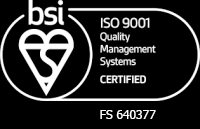What is the Role of a Manufacturing Consultant?
In today’s fast-paced and competitive manufacturing landscape, companies are constantly seeking ways to optimise their operations, improve efficiency, and boost profitability. This is where manufacturing consultants play a crucial role. They are experts in their field, bringing a wealth of knowledge and experience to help businesses overcome challenges and achieve their goals.
Core Responsibilities:
The role of a manufacturing consultant encompasses a wide range of responsibilities, including:
1. Assessing Current Operations:
- Thoroughly analysing existing manufacturing processes, identifying bottlenecks, inefficiencies, and areas for improvement.
- Evaluating production lines, machinery, and equipment to identify potential upgrades or replacements.
- Reviewing supply chain management, inventory control, and logistics to optimise the flow of materials and reduce costs.
2. Developing Strategic Plans:
- Working with management to create comprehensive strategic plans that align with the company’s overall goals and objectives.
- Identifying growth opportunities, market trends, and potential risks to ensure long-term sustainability.
- Implementing lean manufacturing principles and other methodologies to streamline processes and eliminate waste.
3. Improving Efficiency and Productivity:
- Recommending and implementing new technologies, automation solutions, and digital tools to enhance efficiency and productivity.
- Training employees on new processes and procedures to ensure a smooth transition and maximise the benefits of implemented changes.
- Conducting time and motion studies to identify areas where time and resources can be better utilised.
4. Enhancing Quality Control:
- Developing and implementing quality control measures to ensure products meet or exceed customer expectations and industry standards.
- Establishing robust testing procedures and protocols to identify and address any defects or inconsistencies in production.
- Implementing statistical process control (SPC) techniques to monitor and control process variations.
5. Reducing Costs and Increasing Profitability:
- Identifying cost-saving opportunities throughout the manufacturing process, including energy consumption, material usage, and labor costs.
- Implementing cost reduction strategies such as lean manufacturing, value engineering, and supply chain optimisation.
- Analysing pricing structures and profit margins to ensure optimal profitability.
Expertise and Skills:
Manufacturing consultants possess a diverse skill set that enables them to effectively address the complex challenges faced by manufacturers. They typically have:
- In-depth knowledge of manufacturing processes, technologies, and industry best practices.
- Strong analytical and problem-solving skills.
- Excellent communication and interpersonal skills to effectively collaborate with management and employees at all levels.
- Project management expertise to ensure successful implementation of recommended solutions.
- The ability to adapt to different industries and environments.
Benefits of Hiring a Manufacturing Consultant:
Hiring a manufacturing consultant can provide numerous benefits for businesses, including:
- Improved operational efficiency and productivity.
- Reduced costs and increased profitability.
- Enhanced product quality and customer satisfaction.
- Increased competitiveness and market share.
- Access to specialised knowledge and expertise.
- Faster implementation of new technologies and processes.
In conclusion, manufacturing consultants play a pivotal role in helping companies optimise their operations, overcome challenges, and achieve sustainable growth. By leveraging their expertise and experience, they can help manufacturers stay ahead of the curve in today’s dynamic and competitive business environment.





